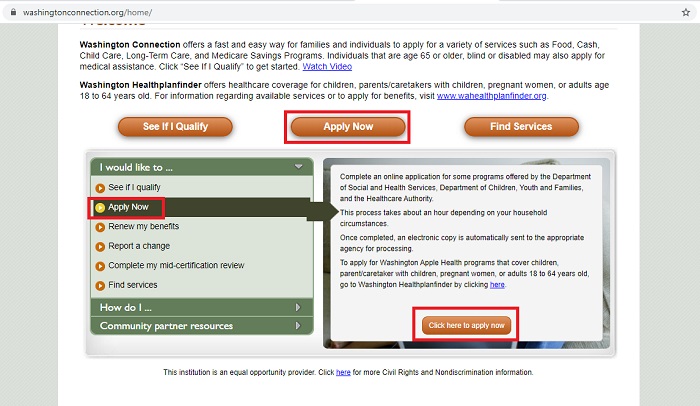The Supplemental Nutrition Assistance Program (SNAP) of Washington is a program that provides help to you and your family to buy necessary foods to have good health. You will be able to buy in most grocery stores and other retailers.
If you meet the program guidelines, you will receive a special debit card called an EBT card; it is loaded with food stamps or money to pay for the products.
In this article, we will explain the process and requirements to apply to get the stamps in the state of Washington.
What are food stamps?
The US Department of Agriculture manages the Supplemental Nutrition Assistance Program (SNAP), which provides help to low-income individuals or families by giving them food stamps or money.
These stamps are loaded in a card called EBT: Electronic Benefits Transfer. It looks exactly like a debit card, and you can see the list of authorized stores and markets by downloading the Fresh EBT app (available only on the App Store).
However, the amount you can get will depend on:
- Your household income (either from a job, Social Security, or SSI).
- The number of people living in your home.
- The location of your home.
Eligibility criteria
The eligibility process is rigorous, and the requirements can vary depending on your case, but there are some regular aspects that you should know, such as:
Profile
- If you are unemployed, you can still apply as long as you are not resigning or reducing your hours just to get the benefits.
- In case you have a drug felony conviction, you are still eligible for food stamps in Washington.
- This program is mainly for US citizens; however, non-citizens can apply if they have a qualified alien immigration status (this includes refugees, victims of trafficking, Cuban, Haitian, Iraqi and Afghan immigrants, etc.).
- If you are homeless, you can still apply. Just make sure to clarify this point in your request.
- If you have one child or more, you can get more benefits (because they are calculated according to your household members). However, while being pregnant, you cannot get more food stamps.
Income limit
In addition, the state of Washington also requires an income limit for food stamps. These are the values from October 1, 2019, through September 20, 2020.

➡ READ ALSO: How to apply for social security spousal benefits?
How to apply?
There are two ways to apply for food stamps in Washington:
By phone
First, call your local office of the Washington State Department of Social and Health Services; another option is Washington’s Customer Service Contact Center (1-877-501-2233).
Then, a representative will check if you meet the eligibility criteria, and tell you about the specific documents you need to collect.
Online
It is the most used option.
- Go to https://www.washingtonconnection.org/home.
- Click “Create Account” and follow the steps.
- Just to be sure, we recommend you to take the qualification survey. If you want to do it, go back to the main page and click “See If I Qualify.” When you finish, you will continue to the application page.
- If you want to skip the step above, just click “Apply Now,” follow the steps, and when they ask you about the benefits you want to receive, select “Basic Food.”
It takes about an hour, and once you finish the process, they will send an electronic copy to the agency in charge.
Be ready to receive an email, a mail notification, or a phone call to guide you through the next steps.
Required documents
You will need to provide documents that prove the following:
Number of people living in your home
Tax returns, school records, clinical cards or hospital records, current Medicaid cards, or unrelated owner’s statement.
Home address
Current rent receipt, recent utility bill in your name, non-family landlord statement, real estate tax bill, copy of current lease, mortgage book, or current mail address.
Home expenses
Current utility bills in your name, rent receipts, tax return, mortgage records, credit card receipts, bank statements, store receipts, home care receipts, or bankruptcy records.
Medical expenses
Hospital records and bills, home care bills, insurance bills, Medicaid statement, health care provider records and bills, or receipts for prescription drugs.
Social Security
Any receipt from Social Security is good.
Proof of age
Birth certificate, driver’s license, state-issued non-driver identification card, marriage certificate with date of birth, immigration or naturalization certificate, hospital birth certificate, Medicaid card, or US passport.
Proof of income and resources
- Income: Current pay stubs, employer letter, income tax return, business records, current unemployment check, bank statements, credit union records, family court records, Social Security benefit statement, or Veterans Administration benefit check.
- Resources: Bank records, credit union records, stock and bond certificates, trust fund agreements, deeds, life insurance policies, funeral fund records, motor vehicle registration or title.



